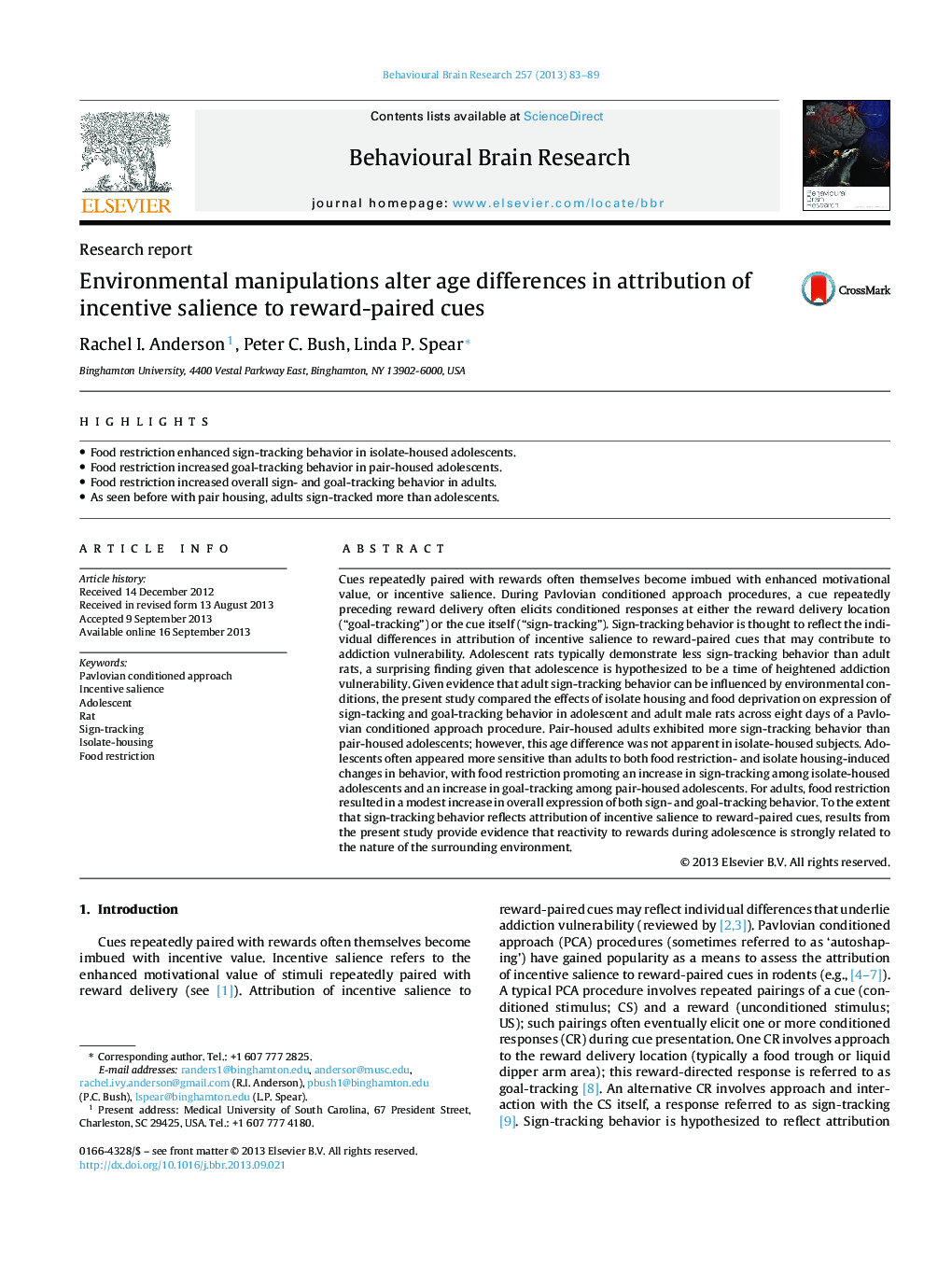| کد مقاله | کد نشریه | سال انتشار | مقاله انگلیسی | نسخه تمام متن |
|---|---|---|---|---|
| 6258486 | 1612975 | 2013 | 7 صفحه PDF | دانلود رایگان |
- Food restriction enhanced sign-tracking behavior in isolate-housed adolescents.
- Food restriction increased goal-tracking behavior in pair-housed adolescents.
- Food restriction increased overall sign- and goal-tracking behavior in adults.
- As seen before with pair housing, adults sign-tracked more than adolescents.
Cues repeatedly paired with rewards often themselves become imbued with enhanced motivational value, or incentive salience. During Pavlovian conditioned approach procedures, a cue repeatedly preceding reward delivery often elicits conditioned responses at either the reward delivery location (“goal-tracking”) or the cue itself (“sign-tracking”). Sign-tracking behavior is thought to reflect the individual differences in attribution of incentive salience to reward-paired cues that may contribute to addiction vulnerability. Adolescent rats typically demonstrate less sign-tracking behavior than adult rats, a surprising finding given that adolescence is hypothesized to be a time of heightened addiction vulnerability. Given evidence that adult sign-tracking behavior can be influenced by environmental conditions, the present study compared the effects of isolate housing and food deprivation on expression of sign-tacking and goal-tracking behavior in adolescent and adult male rats across eight days of a Pavlovian conditioned approach procedure. Pair-housed adults exhibited more sign-tracking behavior than pair-housed adolescents; however, this age difference was not apparent in isolate-housed subjects. Adolescents often appeared more sensitive than adults to both food restriction- and isolate housing-induced changes in behavior, with food restriction promoting an increase in sign-tracking among isolate-housed adolescents and an increase in goal-tracking among pair-housed adolescents. For adults, food restriction resulted in a modest increase in overall expression of both sign- and goal-tracking behavior. To the extent that sign-tracking behavior reflects attribution of incentive salience to reward-paired cues, results from the present study provide evidence that reactivity to rewards during adolescence is strongly related to the nature of the surrounding environment.
Journal: Behavioural Brain Research - Volume 257, 15 November 2013, Pages 83-89
